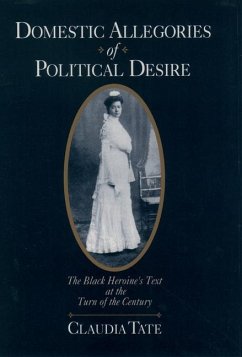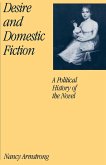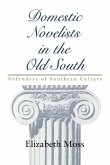Once this domestic allegory of political desire is unmasked in these novels, it can be seen as a significant discourse of the post-Reconstruction era for representing African-Americans' collective dreams about freedom and for reconstructing those contested dreams into consummations of civil liberty.
Why did late nineteenth-century African-American women novelist use idealized stories of bourgeois courtship and marriage to mount arguments of social reform during a time when resurgent racism conditioned the lives of all black Americans? This is the question at the center of Tate's examination of the novels of Pauline Hopkins, Emma Kelley, Amelia Johnson, Katherine Tillman, and Frances Harper.
Hinweis: Dieser Artikel kann nur an eine deutsche Lieferadresse ausgeliefert werden.
Why did late nineteenth-century African-American women novelist use idealized stories of bourgeois courtship and marriage to mount arguments of social reform during a time when resurgent racism conditioned the lives of all black Americans? This is the question at the center of Tate's examination of the novels of Pauline Hopkins, Emma Kelley, Amelia Johnson, Katherine Tillman, and Frances Harper.
Hinweis: Dieser Artikel kann nur an eine deutsche Lieferadresse ausgeliefert werden.








